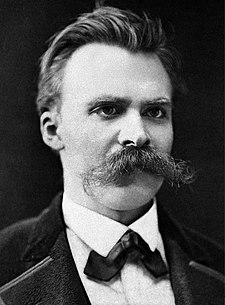(Cégep Édouard-Montpetit)
Nietzsche herméneute
Vendredi, 27 février, 2015
Dans
son maître ouvrage L’universalité de l’herméneutique (1993), Jean
Grondin qualifie Nietzsche de «premier panherméneute ». Ma conférence
interrogera
la signification de cette qualification, mais aussi l’absence même de
Nietzsche (et ce, malgré cette qualification) dans l’histoire de
l’herméneutique philosophique. L’objectif de ma conférence sera de
réhabiliter la place de Nietzsche dans l’histoire et la
théorie herméneutiques. Pour ce faire, je commencerai par montrer que
Nietzsche est éclipsé de l’histoire de l’herméneutique en raison d’une
association entre le perspectivisme et le relativisme; je montrerai
ensuite qu’une telle association, erronée, a été
rendue possible par la construction (dans la France des années 1960)
d’une figure de Nietzsche comme auteur d’une « œuvre fragmentée », et
que cette construction ne rend pas justice au projet et à l’œuvre
philosophiques élaborés par Nietzsche lui-même; et je
terminerai enfin en décrivant les aspects fondamentaux de la philosophie
nietzschéenne qui font de lui un philosophe herméneute.
Vendredi, 27 février, 2015
15:00
University d'Ottawa
Pavillon Desmarais (55, Laurier Est)
Salle 8161
